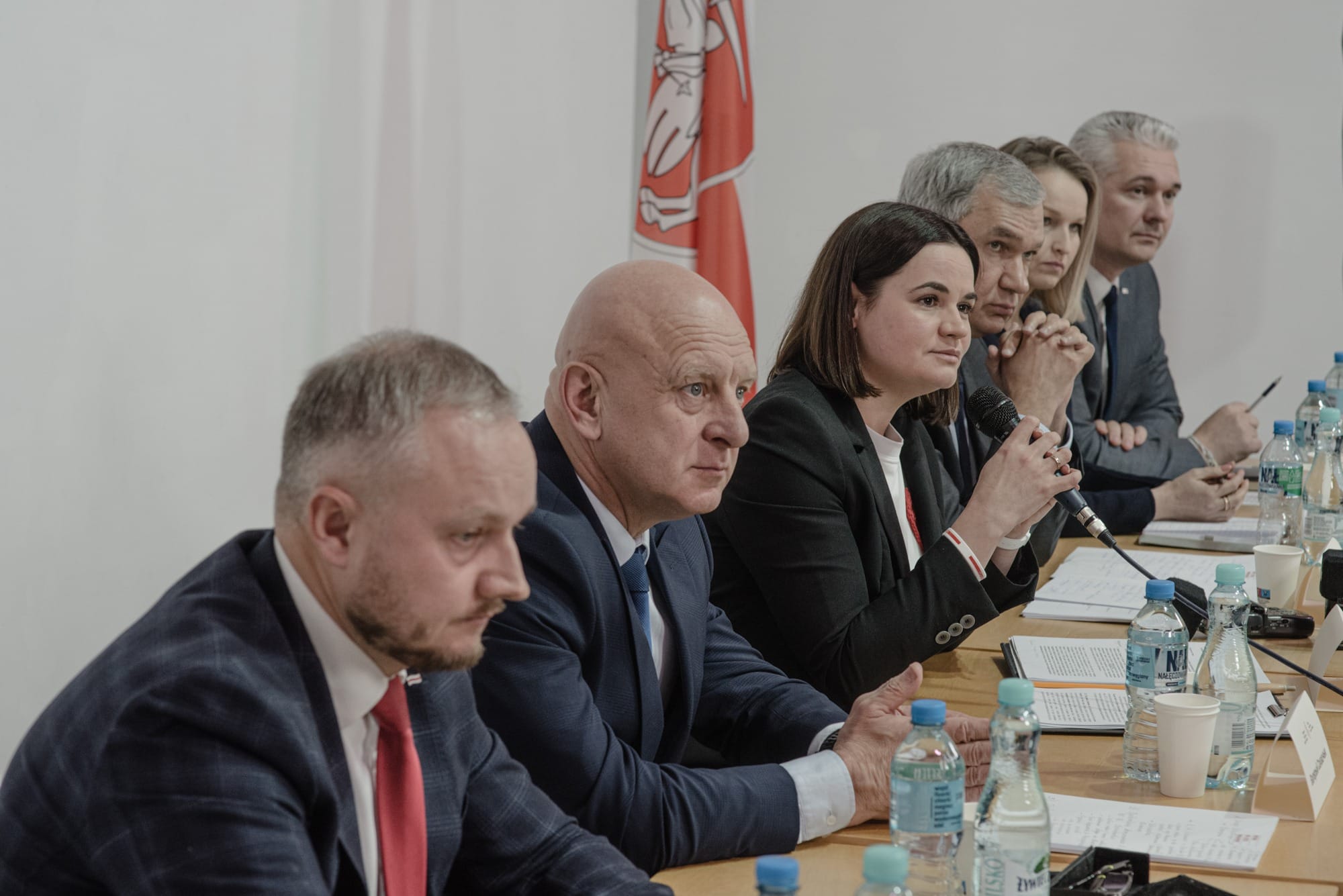EU considers new sanctions as pro-democracy forces seek Western recognition
 The situation has gotten better
The situation has gotten better
Belarusian democratic forces in exile are seeking greater recognition from Western institutions, including the European Parliament and the OSCE. But instead of taking real steps to delegitimise the regime internationally, the EU still prefers to apply sanctions pressure on the regime.

On 3 May, during her visit to Malta, the leader of the Belarusian democratic forces, Sviatlana Tsikhanouskaya, and the President of the European Parliament, Roberta Metsola, signed a Letter of Intent on Cooperation between the European Parliament and the Belarusian Democratic Forces.
The document states that the United Transitional Cabinet (UTC) and the Coordination Council (CC) should be considered by the international community as representatives of the Belarusian people. The declaration of support extends to the activities of the main political structures of the democratic movement of Belarus promoting the pro-European choice, including Tsikhanouskaya, CC, UTC and political parties. The document outlines the following practical activities of the Belarusian democratic forces and the European Parliament:
- providing support and cooperation to apply pressure on the regime;
- supporting the democratic movement of Belarus to defend its sovereignty, independence and national identity against threats from Russia;
- assisting in resolving the migration issues of Belarusians who were compelled to leave Belarus due to political reasons;
- extending efforts to hold regime officials accountable for crimes against humanity in Belarus and for complicity in war crimes and military aggression against Ukraine.
The signed document paves the way for the CC to explore the possibility of concluding bilateral agreements with national parliaments.
In Malta, the leader of the Belarusian democratic forces also met with Ian Borg, Foreign Minister of Malta, which holds the OSCE Chairmanship this year. Tsikhanouskaya suggested appointing an OSCE Special Representative for Belarus and raising the Belarus issue at the Ministerial Council.
For its part, the EU is working on new restrictions against Belarus. On 29 April, for example, a directive was published in the Official Journal of the European Union making the evasion of EU sanctions a criminal offence. It shall enter into force on the 20th day following that of its publication. EU states will then have 12 months to bring their criminal laws in line with the directive. The Directive provides for the establishment of criminal liability for:
- providing funds or economic resources to a sanctioned person;
- facilitating the entry into, or transit through, the EU of a person subject to an entry ban;
- failure to freeze the funds or economic resources of sanctioned persons;
- trading, importing, exporting, selling, buying, transferring, transiting or transporting sanctioned goods, as well as providing brokering, technical assistance or other services related to such goods;
- circumvention of EU sanctions by various means and assistance in circumventing sanctions, etc.
The issue of plugging sanctions loopholes used by the Minsk authorities was also the subject of talks between Tsikhanouskaya and Norwegian Foreign Minister Espen Barth Eide on 1 May. In particular, they discussed ways of circumventing the sanctions imposed on Belaruskali, which now “sells fertilisers through Russia”.
In addition, Lithuanian President Gitanas Nausėda claims that the European Commission (EC) is currently examining which Russian and Belarusian agricultural products can be subject to excessive tariffs. Introducing higher tariffs should reduce such products flowing into Europe. The EC is already proposing to raise tariffs on imported Russian grain.
According to Commission President Ursula von der Leyen, the aim is to prevent grain stolen in Ukraine from being sold in the EU. It is important to ensure that Russian grain does not hurt the EU market and that Russia does not benefit from exporting these goods, the President said. The EU is seeking to “compel Russia to relinquish” the revenue it is using to fund the war in Ukraine. To that end, it is imposing “excessive tariffs” on grain and other goods imported into the bloc of countries.
Subscribe to our newsletter




Situation in Belarus
Constitutional referendum: main consequences


 Video
Video
How to count the political prisoners: are the new criteria needed?


 Video
Video
Paternalism In Decline, Belarusian Euroscepticism, And The Influence Of Russia


 Video
Video












